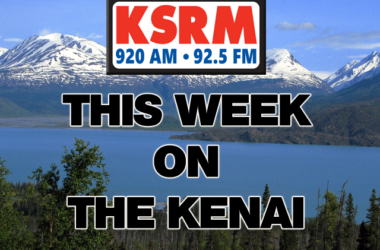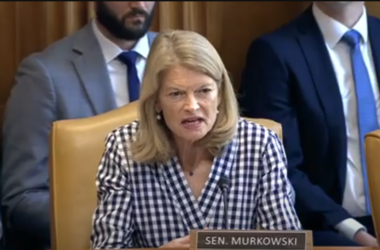(Juneau, AK) – Governor Mike Dunleavy spoke on Wednesday to members of the media to answer questions surrounding education policy reforms in Alaska.
The Governor’s proposed budget from late 2023 did not include any increase to the Base Student Allocation (BSA), which has not seen a notable increase since 2017 and has been clamored for by the majority of educators and residents of the state. On this subject Dunleavy said;
“If you just put money in the BSA, there’ll be no change in performance, because we’ve done that year after year. Does that mean that schools and school districts don’t need money? They do – we’re putting money in the BSA. But why don’t we target it to the problems we know we have?”
The Governor went on to question if an increase to the BSA was a responsible solution in dealing with budget shortfalls and asked if the shortfalls were due to poor fiscal management.
“There are certainly school districts, one here in town, that have problems managing their budget. I used to manage budgets as a superintendent and as a school board president. I feel for the people of Juneau, to be perfectly honest with you, and I’m not kicking Juneau when it’s down. We’re helping them. DEED, our commissioner is helping Juneau…In some school districts, you have PCNs – positions – that are funded that you never really fill and you use that money for other parts of your program. But in a budgeting spreadsheet, it would look like that money is dedicated to that position. I’m not indicating that there’s anything illegal going on. I think everything is being accounted for following statutes. But if Anchorage is having a hard time accounting, let us know and we’ll come in and help you with it…The help that a lot of school districts want is just the BSA and that’s like some kind of salve or poultice…If you go to get a house loan for a home, you can’t just walk into a bank and say ‘I want a million dollars. Don’t ask any questions. Just give me a million dollars.’ I could wear a pin, too, that says ‘Give me a million dollars for my house.’ We have a fiduciary responsibility to make sure that money is being spent the right way. We have a fiduciary responsibility to help people if there’s a problem. So I would suggest people open up their books. Let DEED go in and help them out, and then we can see where they need targeted assistance. There’s no doubt with inflation on energy and a whole host of things, schools need targeted assistance. But why when you look at the spreadsheets there are some school districts that seem to be in balance or OK and others that don’t?”
Another criticism of Dunleavy’s proposed education funding stems from his emphasis on more funds for charter and homeschooling while public schools are having to cut back on programs and teacher-student levels. To this the governor said;
“These are all public schools… Our charter schools are public schools with public school students, with public school teachers with certificates trying to achieve a public educational outcome…There are private homeschoolers not associated with the state – lots of those folks – but your public home schools are public schools.I keep hearing this erroneous thing – it’s an error – that charters and home schools are not public…‘Neighborhood schools’ is what we sometimes refer to them as – the traditional schools. Not everybody could do well in a traditional school. I ran the Mat-Su Central School for a while. I could sit here for hours and tell you the specific cases as to why a parent brought their kid to that program – the young lady that was rear ended on the road and severely disabled as a result of that. The mother looks at me and says it’s not going to work for us to bring her to a neighborhood school. The kid that was traumatized by other students will not go to school, but needs to be educated. The parent that works periodically throughout the world and needs to bring their kids with them. That’s number one.Number two, we’re not forcing charter schools on people. They’re banging on the door for more charter schools. The parents are, the kids are, and in many cases, teachers that want to teach there are. Why wouldn’t we want to support that especially when the outcomes show that we’re doing well?”






